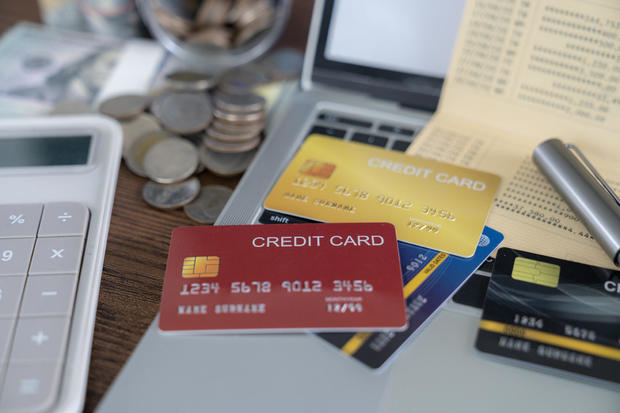4 signs credit card debt forgiveness may not work for you
If you're tired of making monthly credit card payments only to see minimal reductions in your balances then you may be looking into debt relief options. Credit card debt forgiveness is one to consider.
Debt forgiveness companies aim to help you save money and get out of debt faster through negotiations. If those negotiations are successful, your credit card companies may forgive a percentage of your balances, which could provide the relief you're looking for.
But, like all debt relief options, credit card debt forgiveness isn't a one-size-fits-all solution. So, what are some signs that credit card debt forgiveness may not work for you? That's what we will detail below.
Let a debt relief expert help you put your credit card debt behind you now.
4 signs credit card debt forgiveness may not work for you
While credit card debt forgiveness programs are a good fit for some borrowers, they aren't perfect for everyone. Here are a few signs that credit card debt forgiveness may not work for you:
You always make your payments on time
Credit card debt forgiveness is typically designed for borrowers who can't consistently make minimum payments. So, if you make your credit card payments on time, every time, that may be a sign that these programs aren't a good fit for you.
There are a wide range of debt relief options. And, credit card debt forgiveness is a more extreme option that can come with more significant repercussions than others. So, if you can afford to make your monthly payments on time - even if it's not always comfortable - other debt relief solutions may be a better fit.
Find alternatives to credit card debt settlement here.
You don't have enough credit card debt
Most credit card debt forgiveness companies require minimum debt amounts to qualify for their services. For example, you'll need at least $10,000 in credit card debt to qualify for the services Accredited Debt Relief provides and Freedom Debt Relief and National Debt Relief both impose $7,500 minimums. If you have under $7,500 in credit card debt, you may be hard-pressed to find a service provider to work with.
You already have a judgment
If you forego payments to your credit card companies for too long, they may sue you for the money you owe. And, if your credit card companies sell your debt to a debt collector, that collector may take you to court, too.
If you lose the case, your credit card companies, or the debt collectors they've sold your debt to, may win judgments against you. Those judgments can give them leverage, making them less likely to negotiate what you owe. While you may be able to settle a debt following a judgment against you, doing so may be more difficult. So, if you already have one or more judgments against you and can't afford to pay the debt back, bankruptcy may be a better option.
You're considering a large purchase
Credit card debt forgiveness may not be your best debt relief option if you want to make a large purchase, like a home or car. That's because these solutions can harm your credit score, making it difficult to access new loans.
"Asking for payment relief or debt forgiveness should be given serious consideration prior to taking action," explains Michael Broughton, founder and CEO of the credit-building app, ALTRO. "Once you request a change to terms or a lower payment, your credit could be impacted and the chances that you will be able to get loans for other, unrelated items can be severely diminished."
The bottom line
Credit card debt forgiveness is a fitting solution for many people - especially if they can't afford their minimum payments. But, it's not the best fit for everyone. You may want to consider other options if you always make your payments on time, don't have enough credit card debt, already have judgments against you or you're in the market for a large purchase. Chat with an expert about your debt relief options now.




